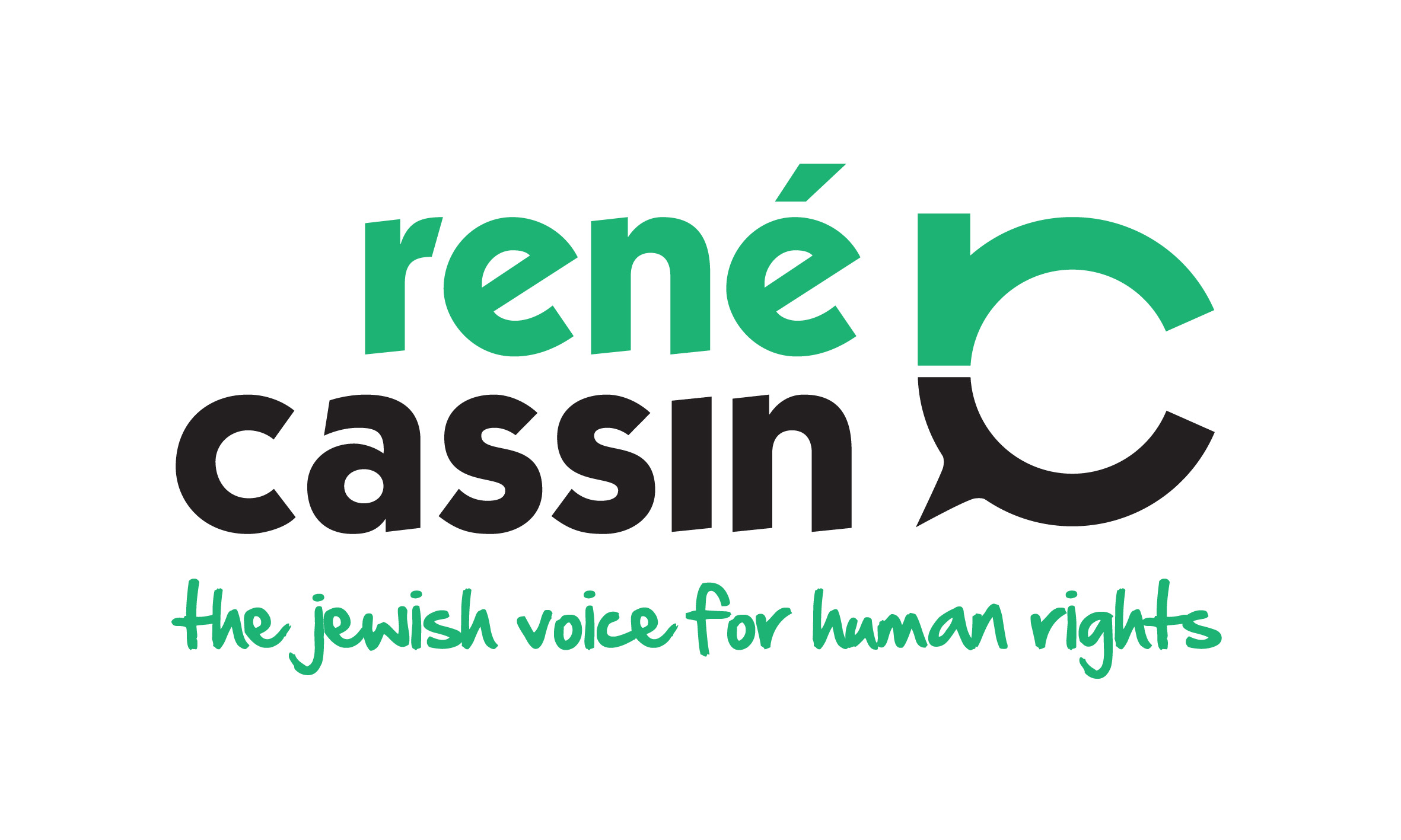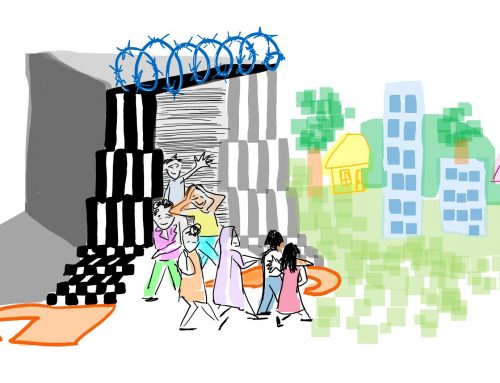By Freya Wainstein, René Cassin intern, November 2021
(This blog can also be accessed as a PDF document )
When in 2012, then-Home Secretary Theresa May announced she wanted “to create here in Britain a really hostile environment for illegal migration”, I wonder whether she was envisaging no reduction in net migration, but immense growth inthe human rights abuses of undocumented migrants, victims of modern slavery and people of colour in our society. Certainly, I doubt whether she would have predicted that following almost a decade of hostile environment policies, 2021would show record breaking numbers of small boat arrivals into the UK.
At the time of the introduction of hostile environment, UKIP had started rapidly gaining power, mobilising David Cameron to use tougher anti-immigration rhetoric to win back Conservative voters who might be swayed to vote for UKIP. In 2010, Cameron set the net migration target to 100,000 – down from 273,000 in 20071 – requiring immigration workers to prove thatpeople were here illegally rather than viewing claims with the aim of granting migrant or refugee status. According toimmigration workers at the time, the goal was seen as highly unrealistic and due to an overload of cases, they often ended updiscarding cases that required too much work2.
However, it was not only immigration workers who were encouraged to prevent migrants from settling in the UK. Rather, under the hostile environment policy – referred to by Liberty as “a wave of attacks on the human rights of undocumentedpeople” 3 – citizens were transformed into immigration enforcement officers. Immigration status checks became omnipresent, implemented in all areas of public life, including medical care, housing, shelter and employment. Under Operation Vaken, “go home or face arrest” was plastered over vans, buildings used by charity and faith groups and similar messaging was spreadthroughout minority ethnic newspapers4.
The aim of the hostile environment was for life to be made so unbearable for illegal migrants that they would be encouraged toleave, and others would be discouraged from attempting to settle in the UK. Obviously, this policy negatively affected – and continues to negatively affect – those who are here illegally but it also ended up targeting undocumented migrants who were here legally but unable to prove it5. This includes asylum seekers awaiting refugee status or those who came to the UK legally,for example on a work or study visa, yet lost their legal status. Whilst they may be legitimate refugees who fear returning to a country where they are in danger, many do not apply for asylum because of chance of being rejected due to harsh restrictions and the expensive cost of the process. Thus the hostile environment continues to have detrimental effects on undocumented people in the UK, seemingly prioritising their status as undocumented over their status as human. At every turn, vulnerablepeople are having their human rights threatened by the hostile environment policy.
In the case of undocumented migrants and refugees, they are denied a right to work or claim benefits, meaning they have noclear way of supporting themselves. Even those who do have recourse to public funds only receive a meagre £36 per weekwhich is nowhere near sufficient to enable someone to live in dignity. Additionally, they are confronted by a constant fear of deportation when it comes to accessing public services leaving them unable to work, claim benefits, get refuge from abuse,find
accommodation or access medical care6. Following exclusion from use of public services and an inability to access support,undocumented people are forced into destitution7.
For those in asylum accommodation, the situation is no better. Under the hostile environment policy, asylum seekers – many ofwhom have recently escaped traumatic situations in their home countries
– are repeatedly placed in highly unsuitable accommodation. Asylum accommodation has resulted in 95 deaths since April2016 and Home Office Data showed that between January and March 2020, 83% of asylum accommodation had defects and40% was uninhabitable8.
Migrant women, in particular, are negatively impacted by the hostile environment, with insufficient provision of protectionmeasures compared to other women in the UK. Indeed, the 2020 “life-saving” Domestic Abuse Bill deliberately left out migrant women by denying them access to public funds and support9.
Another vulnerable group bearing the brunt of hostile environment policies are victims of modern slavery and humantrafficking, for whom the hostile environment creates a highly vicious circle10. Since there are no safe, legal routes into the UK, those fleeing danger in their home countries are often forced to turn to perpetrators of trafficking. Likewise, since undocumented people cannot work or receive benefits in the UK, the need to support themselves puts them at high risk ofexploitation. Then, once an undocumented person falls victim to modern slavery, it is extremely difficult to escape since they are afraid to engage in public bodies for fear of being deported, particularly since the 2016 Immigration Act criminalised undocumented work11. Even those who have been identified as victims of slavery can have this status trumped by their status as illegal migrants. Hence, an inescapable fear of deportation means victims of modern slavery are unlikely to report the crimes committed against them or seek refuge.
It is not just undocumented people being negatively impacted by the hostile environment. It has also perpetuated the direproblem of institutional racism in this country. Hostile environment policies were responsible for the attempted detainment anddeportation of thousands of black people12 who came here legally from the Caribbean in the 1940s and have called the UK home ever since. Policy aiming to tackle illegal immigrants mistakenly targeted the ‘Windrush Generation’, who wereprevented from receiving benefits, working and were wrongly detained or even deported.
The hostile environment also perpetuates racism in more inconspicuous ways. Because suspicion is encouraged in order toreveal illegal migrants, it seems that anyone who looks foreign may be subject to discrimination. For example, under the Government’s ‘Right to Rent’ scheme, landlords were threatened with criminal sanctions if they failed to confirm that their tenants were legal citizens. This inevitably deterred landlords from taking on tenants who did not have a British passport orlooked foreign. As a result, it took Black, Asian, Ethnic Minority people and migrants up to double the time to find property as awhite British person.13 Unsurprisingly, this scheme was later ruled incompatible with human rights law due to its role inencouraging discrimination.14 Furthermore, the European Court of Human Rights found that there were clear warning signsthat the hostile environment policy would lead to racial discrimination and that Windrush could have been prevented if the Home Office paid attention to this.15
Taking together the impact of the hostile environment on institutional racism, undocumented migrants and refugees and victims of modern slavery, the evidence points to a policy fostering a culture in the UK that sees human rights as conditional.Conditional on being white, born in the UK or of financial worth to the country. Those who are here because they fledpersecution are treated as an inconvenient burden at best, and illegal contraband at worst – most certainly not as human beings deserving of respect and dignity. They are stripped of their most basic rights, including the right to healthcare, adequate living standard and education. This then breeds a culture of hostility toward those who are different from us and suggests that human rights are not to be universally assumed. Meanwhile, under new legislation the situation only looks bleaker, with the Nationality and Borders Bill16 and a review of the Human Rights Act further threatening the human rights of vulnerable people17.
Yet despite all this, the number of people arriving in the UK is at an all-time high. Although Brexit seemingly represented a peak in our hostility toward outsiders and although the overall number of people fleeing conflict has fallen in the last year, the number of small boat arrivals into the UK has risen sharply since we left the EU. Refugees report that Brexit has made it easierto get into the UK, in part because the UK no longer has the power to return refugees to other European countries. A recordbreaking 1,185 channel crossings took place on 11th November 2021. Thus, one thing is clear, the hostile environment policy isboth inhumane and highly ineffective.
We must ask why, then, the Home Office continue to deny human rights to undocumented people in the UK and call for animmediate overhaul of the current culture of hostility. It is vital that we respond to the preamble of the Universal Declaration forHuman Rights, recognising that “the inherent dignity and of the equal and inalienable rights of all members of the human family is the foundation of freedom, justice and peace in the world”. No longer can human rights be conditional.
3 https://www.libertyhumanrights.org.uk/fundamental/hostile-environment/
4 https://www.theguardian.com/uk-news/2013/oct/31/go-home-vans-11-leave-britain
5 https://www.youtube.com/watch?v=cGiTWNtgqSU&t=44s
6 https://www.ft.com/content/c4379314-dbc3-4069-bcc1-f4cfac106d3c
7 https://www.youtube.com/watch?v=cGiTWNtgqSU
8 https://www.theguardian.com/uk-news/2020/dec/15/revealed-shocking-death-toll-of-asylum-seekers-in-home-office- accommodation?utm_term=Autofeed&CMP=twt_gu&utm_medium&utm_source=Twitter#Echobox=1608036327
12 https://www.gcfoundation.co.uk/windrush-racism
13 https://www.jcwi.org.uk/the-hostile-environment-explained
16 https://bills.parliament.uk/bills/3023
17 https://www.renecassin.org/the-nationality-borders-bill-what-can-you-do/





